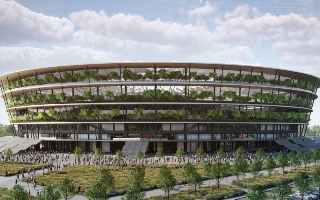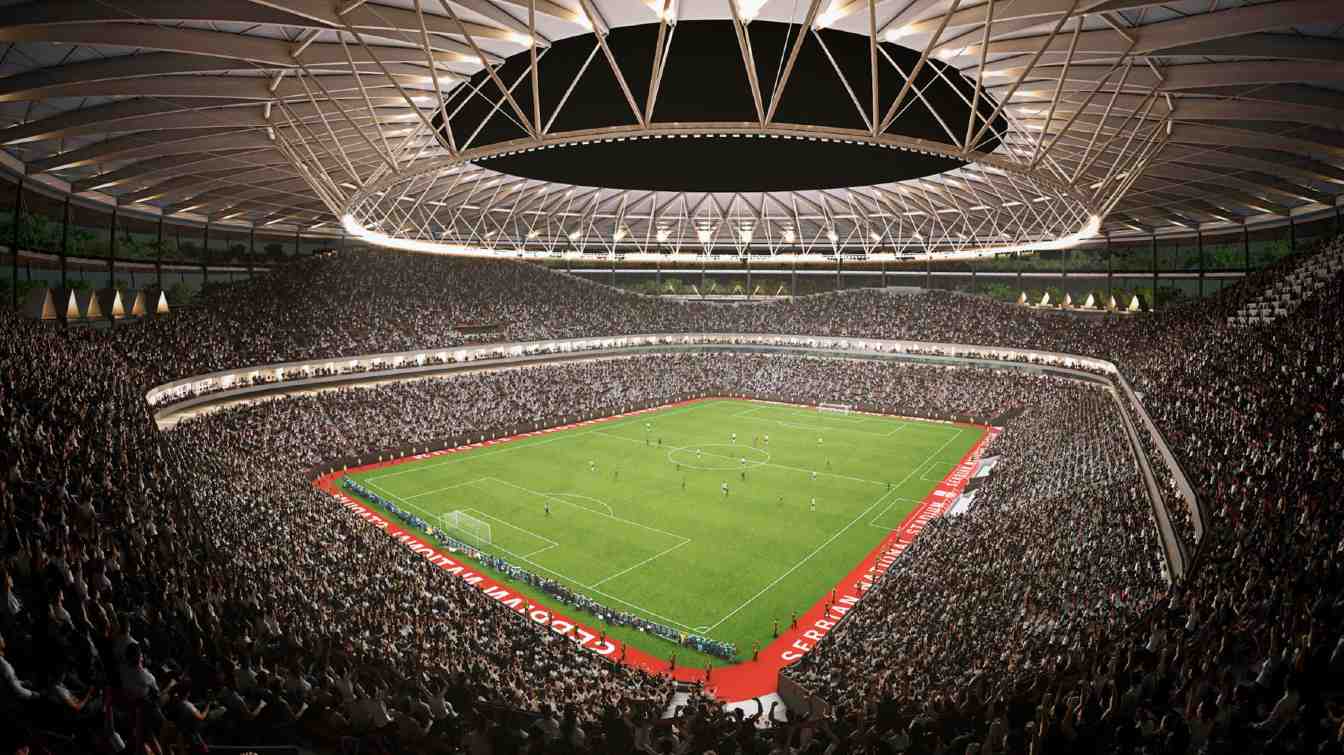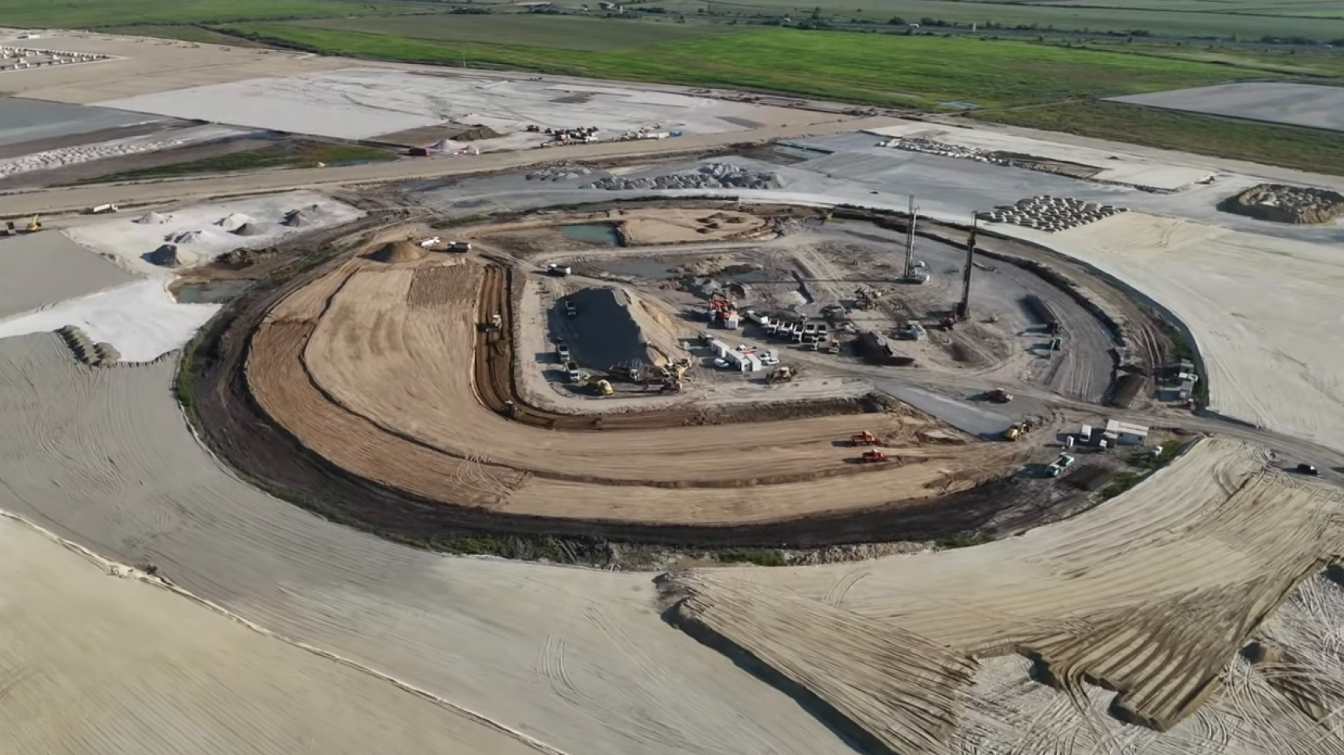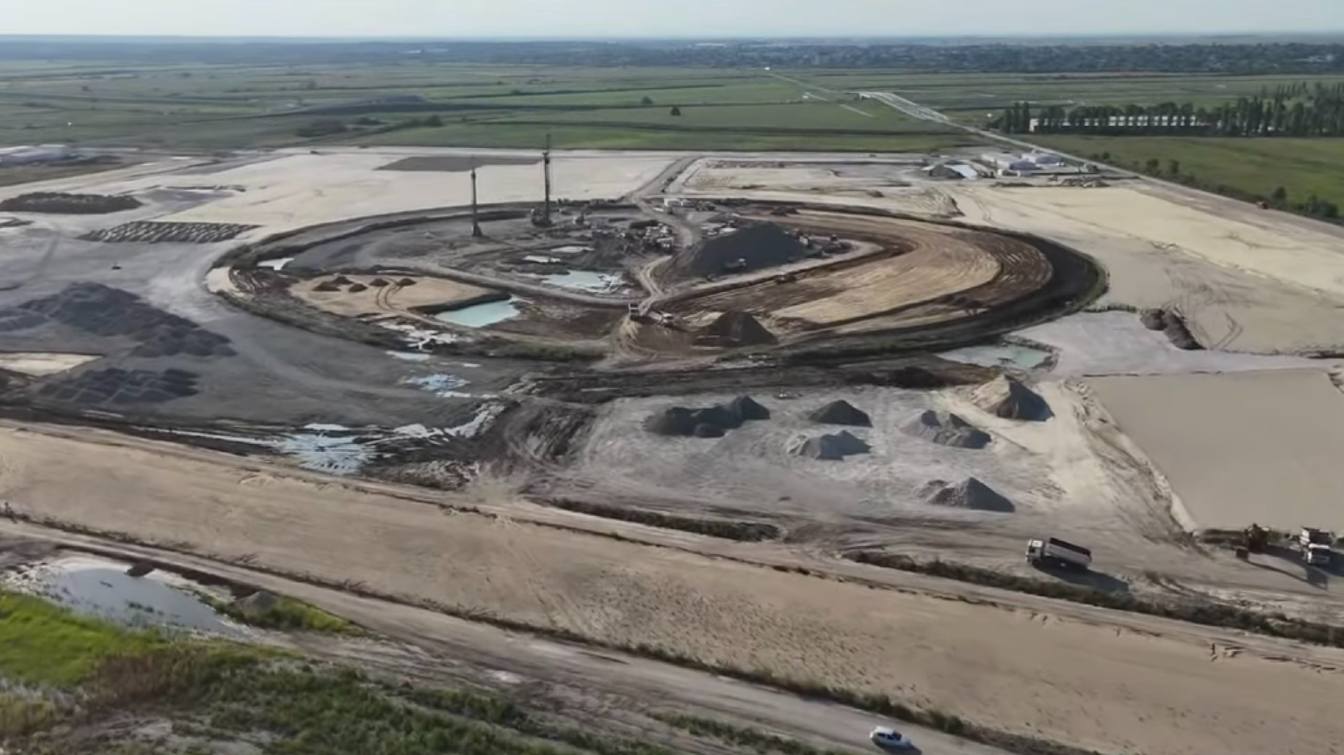Serbia: Controversy surrounding contract for National Stadium in Belgrad
source: StadiumDB.com; author: Jakub Ducki
 There is no shortage of controversy surrounding construction in the western part of Belgrade. This time, the state has signed a contract with an investor linked to friendly politicians. A loan has been approved and the stadium itself is causing divisive public opinion. Meanwhile, the first effects of the work can already be seen on the construction site.
There is no shortage of controversy surrounding construction in the western part of Belgrade. This time, the state has signed a contract with an investor linked to friendly politicians. A loan has been approved and the stadium itself is causing divisive public opinion. Meanwhile, the first effects of the work can already be seen on the construction site.
Advertisement
Controversial contract
Energotehnika Južna Bačka, a company owned by Dragoljub Zbiljić, has won a contract to build a trigeneration energy system for National Stadium in Serbia. The order is worth €152 million. The total cost of the stadium project is estimated at more than €600 million and is scheduled for completion in 2026. There are numerous infrastructure projects on site, one of the most important of which is the one won by Zbiljića, working with 38 subcontractors.
It is controversial that Zbiljić, known for his close ties to the ruling Serbian Progressive Party, regularly obtains significant contracts from the state. This in turn raises questions about the transparency of the tender process. The owner of Energotehnika Južna Bačka is also known to the public as the guarantor of a 55 million dinar election campaign loan that the then opposition took from Univerzal Bank in 2012.
 © Fenwick Iribarren Architects
© Fenwick Iribarren Architects
Progress on construction
In May 2024, construction of the new stadium officially began, with the foundation stone being laid at a ceremony. Now, three months later, the first progress on the construction site can already be seen. It is worth noting that a trade fair and exhibition hall is being built in the vicinity of the stadium at the same time.
Earthworks are being carried out on the stadium site and the shape of the circular arena is already clearly visible. It is also possible to see where the turf will be placed. Three embankments can also be seen on site, which will correspond to the three levels of the planned stands. Heavy equipment and cranes are on site.
Multi-million dollar state loans
Members of the Serbian parliament have passed several laws allowing loans for infrastructure projects worth a total of 80.7 billion dinars (approximately €688.6 million).
The most important of these laws is the one that allows the Republic of Serbia to borrow from Bank Poštanska Štedionica to finance the Municipal Infrastructure Construction Project and the National Stadium in Belgrade, including access roads. For the construction of the stadium, the Serbian government took a loan of 42 billion dinars (approximately €360 million).
Politicians in favour, Forbes main editor against
I will vote for the construction of the national stadium, for the construction of road infrastructure, I have always voted for construction. The construction of the national stadium is a necessity. It is also important to me that we upgrade other stadiums as well. In Svrljig we don't even have a gymnasium
- MP Milija Miletić, chairman of the United Peasant Party, said in parliament.
The editor of Serbian Forbes, who is more sceptical, takes a completely different view. The Fiscal Council has been an independent institution for years, critical of the government's economic policy. However, I fear that the current situation is changing this picture
Ivan Radak told N1.
There are legitimate loans, such as for the construction of a sewage network or sewage treatment systems. However, we do not need a national stadium of this size, especially at these prices. We have compared the costs of building stadiums in other countries and it turns out that they are lower. We also have debt for the Kragujevac bypass, the development of biomass and the improvement of electricity distribution systems. Some loans are justified, but it is worth considering from whom and under what conditions we take them
Radak stressed.
Advertisement
 StadiumDB
StadiumDB
